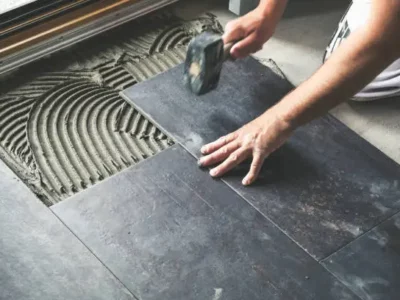The legal tools you use when trading with properties are important. If you don’t know what legal resources to use, this blog post will help! It will discuss legal resources like title searches and title insurance that any property owner should be aware of.
An Attorney
Having legal counsel is great for any given situation, and property is no exception. Hiring a real estate lawyer is an essential part of any transaction, whether you are the buyer or seller. Attorneys can help you understand the contract and all of its details, as well as review it for any potential legal issues. They can also act on your behalf during the transaction, making sure everything goes smoothly.
If something does go wrong, an attorney can be there to help resolve the dispute. Having an experienced professional in your corner is always a good idea when it comes to property transactions.
When looking for an attorney to work with, make sure to ask around for recommendations. You can also check with your state or local bar association for a list of qualified real estate lawyers in your area. No matter what, be sure to interview at least a few different attorneys before making a decision. This is an important decision, and an attorney whom you trust is crucial.
Have The Property Appraised
You need to have your property appraised to ensure that you are getting a fair deal. An appraisal will help to identify any potential problems with the property and give you an idea of what the property is worth. This information can be used to negotiate a better deal with the other party or to get financing in place.
An appraisal doesn’t have to be expensive and it can give you peace of mind when making such a large purchase. Work with a qualified appraiser who will be able to provide you with an accurate estimate of the value of your property. Having an appraisal done before trading properties can help to avoid any costly surprises down the road.
Research The Property Title History
It’s smart to research the property title history before trading with properties. A quick search online can reveal potentially valuable information that might influence your deal or even the structure of it. Understanding how previous owners collected their profits and accumulated equity in a home will help you understand any issues there could be for yourself down the road, including costs to maintain and potential costs associated with selling.
Here are the steps you need to take when researching a property title history:
- Search the address online
- Check for liens and judgments against the owner(s)
- If researching a former business, check to see if it was owned by an LLC or Corp
- Make sure the records match the address on your deed
The property title history is a legal resource that can help you avoid costly mistakes and ensure a smooth trade.
Homeowner’s Insurance Coverage
It’s essential that you get homeowner’s insurance coverage when trading with properties. This is a legal protection that covers you in case anything happens to the homeowner, whether it be theft or damages from storms and fires.
Without homeowner’s insurance coverage, any losses suffered by yourself during your rental of their home can’t be recovered from the homeowner themselves. In addition to this, you should also get a renter’s insurance policy which will cover damage done by natural disasters such as fire and floods while renting out someone else’s property.
Review Zoning Regulations
Zoning regulations are an important legal resource to consult when trading with properties. By reviewing the zoning regulations for the area in which a property is located, you can get a good sense of what uses are allowed or prohibited on the property. This information can be helpful in negotiations with other parties involved in a real estate transaction.
Zoning regulations vary from municipality to municipality, so it is important to review the specific regulations that apply to the area where the property is located. Zoning regulations may include restrictions on things like building height, density, and land use. They may also include special provisions for certain types of properties, such as historic districts or waterfront areas.
Check For Any Liens Or Mortgages
This is an important step in the process of trading properties, as you don’t want to be taking on any additional debt or legal issues. It’s also a good idea to have an attorney look over any contracts before signing them, to make sure that you are protected legally.
Trading properties can be a great way to get started in real estate investing, but it’s important to do your homework first. By checking for liens or mortgages and getting an attorney to review all contracts, you can protect yourself from any potential legal issues. Good luck with your property trades!
Trading properties is a demanding job and there are a lot of legal formalities you need to know. That’s why it’s great to have a lawyer by your side. You should have your property appraised and research the title history. Make sure you have homeowners’ insurance and review all zoning regulations. Finally, check for liens and mortgages on the property to be sure you’re not in debt. Good luck trading!






















